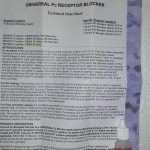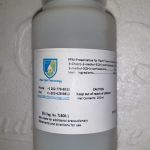- Sinogastromyzon sichangensisis a hillstream loach endemic to the upper Yangtze River, China. It is unclear whether this fish lives in a very restricted area or may be dispersed over a long distance. In the present study spatial connectivity of populations of sichangensis was investigated based on 343 individuals collected from 12 sites of Chishui River and employing 22 microsatellite loci.
- The results of genetic diversity analysis showed that observed heterozygosity (HO) and polymorphism information content (PIC) ranged from 0.5653 to 0.6999 and 0.8513 to 0.8819, respectively. Population structure analysis suggested that sichangensishad an unclear genetic structure. AMOVA showed that 69.36% of genetic variation was attributed to differentiation within individuals and all the pairwise genetic differentiation indices (FST) were low (mean FST = 0.0344), indicating weak differentiation among these populations.
- Estimation of gene flow showed frequent flow among populations, and contemporary levels (mean contemporary migration rate, mc= 0.0131) were approximately equal to historical levels (mean historical migration rate, mh = 0.0147).
- Individual relatedness analysis revealed a high level of sibship within and among different populations. The frequent gene flow and widespread sibship were due to sichangensislaying drifting eggs which travel for a long distance until hatching, after which the juveniles or adults migrate upstream. The results of unclear geographic structure and frequent exchange also indicate that it is necessary to decrease the negative impacts of anthropogenic activities on the connectivity of rivers to protect the migration routes of S. sichangensis.
Case Report: Identification of a Novel Variant (m.8909T>C) of Human Mitochondrial ATP6 Gene and Its Functional Consequences on Yeast ATP Synthase
With the advent of next generation sequencing, the list of mitochondrial DNA (mtDNA) mutations identified in patients rapidly and continuously expands. They are frequently found in a limited number of cases, sometimes a single individual (as with the case herein reported) and in heterogeneous genetic backgrounds (heteroplasmy), which makes it difficult to conclude about their pathogenicity and functional consequences.
As an organism amenable to mitochondrial DNA manipulation, able to survive by fermentation to loss-of-function mtDNA mutations, and where heteroplasmy is unstable, Saccharomyces cerevisiae is an excellent model for investigating novel human mtDNA variants, in isolation and in a controlled genetic context. We herein report the identification of a novel variant in mitochondrial ATP6 gene, m.8909T>C. It was found in combination with the well-known pathogenic m.3243A>G mutation in mt-tRNALeu.
We show that an equivalent of the m.8909T>C mutation compromises yeast adenosine tri-phosphate (ATP) synthase assembly/stability and reduces the rate of mitochondrial ATP synthesis by 20-30% compared to wild type yeast. Other previously reported ATP6 mutations with a well-established pathogenicity (like m.8993T>C and m.9176T>C) were shown to have similar effects on yeast ATP synthase. It can be inferred that alone the m.8909T>C variant has the potential to compromise human health.
Investigating the Role of Telomere and Telomerase Associated Genes and Proteins in Endometrial Cancer
- Endometrial cancer (EC) is the commonest gynaecological malignancy. Current prognostic markers are inadequate to accurately predict patient survival, necessitating novel prognostic markers, to improve treatment strategies. Telomerase has a unique role within the endometrium, whilst aberrant telomerase activity is a hallmark of many cancers.
- The aim of the current in silico study is to investigate the role of telomere and telomerase associated genes and proteins (TTAGPs) in EC to identify potential prognostic markers and therapeutic targets. Analysis of RNA-seq data from The Cancer Genome Atlas identified differentially expressed genes (DEGs) in EC (568 TTAGPs out of 3467) and ascertained DEGs associated with histological subtypes, higher grade endometrioid tumours and late stage EC.
- Functional analysis demonstrated that DEGs were predominantly involved in cell cycle regulation, while the survival analysis identified 69 DEGs associated with prognosis. The protein-protein interaction network constructed facilitated the identification of hub genes, enriched transcription factor binding sites and drugs that may target the network.
- Thus, our in silico methods distinguished many critical genes associated with telomere maintenance that were previously unknown to contribute to EC carcinogenesis and prognosis, including NOP56, WFS1, ANAPC4and TUBB4A. Probing the prognostic and therapeutic utility of these novel TTAGP markers will form an exciting basis for future research.
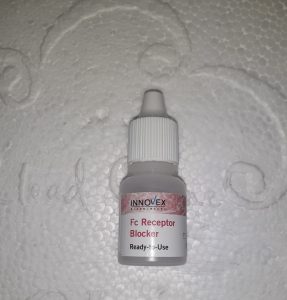
stjosephs-hospital
CRISPR-Cas, a robust gene-editing technology in the era of modern cancer immunotherapy
Cancer immunotherapy has been emerged as a promising strategy for treatment of a broad spectrum of malignancies ranging from hematological to solid tumors. One of the principal approaches of cancer immunotherapy is transfer of natural or engineered tumor-specific T-cells into patients,
a so called “adoptive cell transfer”, or ACT, process. Construction of allogeneic T-cells is dependent on the employment of a gene-editing tool to modify donor-extracted T-cells and prepare them to specifically act against tumor cells with enhanced function and durability and least side-effects. In this context, CRISPR technology can be used to produce universal T-cells, equipped with recombinant T cell receptor (TCR) or chimeric antigen receptor (CAR), through multiplex genome engineering using Cas nucleases.
The robust potential of CRISPR-Cas in preparing the building blocks of ACT immunotherapy has broaden the application of such therapies and some of them have gotten FDA approvals. Here, we have collected the last investigations in the field of immuno-oncology conducted in partnership with CRISPR technology. In addition, studies that have addressed the challenges in the path of CRISPR-mediated cancer immunotherapy, as well as pre-treatment applications of CRISPR-Cas have been mentioned in detail.
Deregulated microRNAs Are Associated with Patient Survival and Predicted to Target Genes That Modulate Lung Cancer Signaling Pathways
Background: Although the advances in diagnostic and treatment strategies, lung cancer remains the leading cause of cancer-related deaths, worldwide, with survival rates as low as 16% in developed countries. Low survival rates are mainly due to late diagnosis and the lack of effective treatment. Therefore, the identification of novel, clinically useful biomarkers is still needed for patients with advanced disease stage and poor survival.
Micro(mi)RNAs are non-coding RNAs and potent regulators of gene expression with a possible role as diagnostic, prognostic and predictive biomarkers in cancer.
Methods: We applied global miRNA expression profiling analysis using TaqMan® arrays in paired tumor and normal lung tissues (n = 38) from treatment-naïve patients with lung adenocarcinoma (AD; n = 23) and lung squamous cell carcinoma (SCC; n = 15). miRNA target genes were validated using The Cancer Genome Atlas (TCGA) lung AD (n = 561) and lung SCC (n = 523) RNA-Seq datasets.
Results: We identified 33 significantly deregulated miRNAs (fold change, FC ≥ 2.0 and p < 0.05) in tumors relative to normal lung tissues, regardless of tumor histology. Enrichment analysis confirmed that genes targeted by the 33 miRNAs are aberrantly expressed in lung AD and SCC, and modulate known pathways in lung cancer. Additionally, high expression of miR-25-3p was significantly associated (p < 0.05) with poor patient survival, when considering both tumor histologies.
Conclusions: miR-25-3p may be a potential prognostic biomarker in non-small cell lung cancer. Genes targeted by miRNAs regulate EGFR and TGFβ signaling, among other known pathways relevant to lung tumorigenesis.
 FOS-B Human Recombinant Protein |
|
PROTP53539 |
BosterBio |
Regular: 5ug |
EUR 574.8 |
|
Description: FOS-B Human Recombinant (a.a. 113-151) expressed in E.coli, shows a 32 kDa SDS-PAGE (Including GST).;The FOS-B is purified by proprietary chromatographic techniques. |
 (NM_006732) Human Over-expression Lysate) Fos B (FOSB) (NM_006732) Human Over-expression Lysate |
|
LS002354 |
BosterBio |
100ug |
EUR 628 |
|
|
|
Description: Transient overexpression lysate of FBJ murine osteosarcoma viral oncogene homolog B (FOSB), transcript variant 1 |
 (NM_005252) Human Over-expression Lysate) c Fos (FOS) (NM_005252) Human Over-expression Lysate |
|
LS002353 |
BosterBio |
100ug |
EUR 628 |
|
|
|
Description: Transient overexpression lysate of FBJ murine osteosarcoma viral oncogene homolog (FOS) |
) FOS siRNA (Human) |
|
MBS8238706-15nmol |
MyBiosource |
15nmol |
EUR 405 |
) FOS siRNA (Human) |
|
MBS8238706-30nmol |
MyBiosource |
30nmol |
EUR 565 |
) FOS siRNA (Human) |
|
MBS8238706-5x30nmol |
MyBiosource |
5x30nmol |
EUR 2450 |
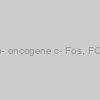 Human Proto- oncogene c- Fos, FOS ELISA KIT |
|
ELI-04266h |
Nova Lifetech |
96tests |
EUR 696 |
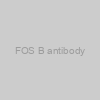 FOS B antibody |
|
29246 |
SAB |
100ul |
EUR 319 |
 FOS B antibody |
|
29246-100ul |
SAB |
100ul |
EUR 302.4 |
 FOS B antibody |
|
MBS9402227-005mL |
MyBiosource |
0.05mL |
EUR 245 |
 FOS B antibody |
|
MBS9402227-01mL |
MyBiosource |
0.1mL |
EUR 305 |
 FOS B antibody |
|
MBS9402227-5x01mL |
MyBiosource |
5x0.1mL |
EUR 1230 |
 Fos B Antibody |
|
B0930-100ul |
Assay Biotech |
100μl |
EUR 217 |
|
Description: Fos B Rabbit Polyclonal Antibody |
 Fos B Antibody |
|
B0930-50ul |
Assay Biotech |
50μl |
EUR 143.5 |
|
Description: Fos B Rabbit Polyclonal Antibody |
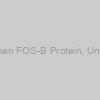 Recombinant Human FOS-B Protein, Untagged, E.coli-2ug |
|
QP11898-2ug |
EnQuireBio |
2ug |
EUR 294 |
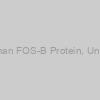 Recombinant Human FOS-B Protein, Untagged, E.coli-5ug |
|
QP11898-5ug |
EnQuireBio |
5ug |
EUR 403.2 |
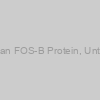 Recombinant Human FOS-B Protein, Untagged, E.coli-10ug |
|
QP11898-10ug |
EnQuireBio |
10ug |
EUR 663.6 |
) Recombinant Human Proto-oncogene c-Fos (FOS) |
|
MBS959009-002mgBaculovirus |
MyBiosource |
0.02mg(Baculovirus) |
EUR 1250 |
) Recombinant Human Proto-oncogene c-Fos (FOS) |
|
MBS959009-002mgEColi |
MyBiosource |
0.02mg(E-Coli) |
EUR 915 |
) Recombinant Human Proto-oncogene c-Fos (FOS) |
|
MBS959009-002mgYeast |
MyBiosource |
0.02mg(Yeast) |
EUR 1040 |
) Recombinant Human Proto-oncogene c-Fos (FOS) |
|
MBS959009-01mgEColi |
MyBiosource |
0.1mg(E-Coli) |
EUR 1100 |
) Recombinant Human Proto-oncogene c-Fos (FOS) |
|
MBS959009-01mgYeast |
MyBiosource |
0.1mg(Yeast) |
EUR 1185 |
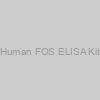 Human FOS ELISA Kit |
|
EHF0120 |
Abclonal |
96Tests |
EUR 625.2 |
 Human FOS ELISA Kit |
|
MBS8427163-INQUIRE |
MyBiosource |
INQUIRE |
Ask for price |
 to Human FOS / c-FOS) Rabbit Polyclonal (IgG) to Human FOS / c-FOS |
|
MBS247088-005mL |
MyBiosource |
0.05mL |
EUR 595 |
 to Human FOS / c-FOS) Rabbit Polyclonal (IgG) to Human FOS / c-FOS |
|
MBS247088-5x005mL |
MyBiosource |
5x0.05mL |
EUR 2500 |
 CLIA Kit) Human Proto-Oncogene C-Fos (FOS) CLIA Kit |
|
20-abx492601 |
Abbexa |
-
Ask for price
-
Ask for price
-
Ask for price
|
-
10 × 96 tests
-
5 × 96 tests
-
96 tests
|
|
|
 ELISA Kit) Human Proto-Oncogene C-Fos (FOS) ELISA Kit |
|
20-abx151580 |
Abbexa |
-
Ask for price
-
Ask for price
-
Ask for price
|
-
10 × 96 tests
-
5 × 96 tests
-
96 tests
|
|
|
 ELISA Kit) Human Proto-oncogene c-Fos (FOS) ELISA Kit |
|
abx570165-96tests |
Abbexa |
96 tests |
EUR 801.6 |
|
|
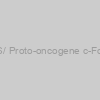 Human FOS/ Proto-oncogene c-Fos ELISA Kit |
|
E0936Hu |
Sunlong |
1 Kit |
EUR 515 |
|
|
|
Description: G0S7,Cellular oncogene fos,G0/G1 switch regulatory protein 7 |
 ELISA Kit) Human FOS(Proto-oncogene c-Fos) ELISA Kit |
|
EH1465 |
FN Test |
96T |
EUR 681.12 |
|
|
|
Description: Method of detection: Double Antibody, Sandwich ELISA;Reacts with: Homo sapiens;Sensitivity: 0.188 ng/ml |
 ELISA Kit) Human Proto-oncogene c-Fos (FOS) ELISA Kit |
|
RK07956 |
Abclonal |
96T |
EUR 280 |
 Human FOS / Proto-oncogene c-Fos ELISA Kit |
|
E1291h |
EIAab |
96T |
EUR 736 |
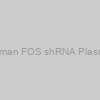 Human FOS shRNA Plasmid |
|
20-abx951644 |
Abbexa |
-
Ask for price
-
Ask for price
|
|
|
|
 Human FOS Protein Lysate |
|
MBS8411880-002mg |
MyBiosource |
0.02mg |
EUR 365 |
 Human FOS Protein Lysate |
|
MBS8411880-5x002mg |
MyBiosource |
5x0.02mg |
EUR 1410 |
 Fos B Rabbit mAb |
|
58812 |
SAB |
100ul |
EUR 339 |
 Fos B Rabbit pAb |
|
E2381043 |
EnoGene |
100ul |
EUR 225 |
|
Description: Available in various conjugation types. |
 Fos B Rabbit mAb |
|
A24339 |
Abclonal |
200μL |
EUR 323.7 |
|
|
|
Description: A synthetic peptide corresponding to a sequence within amino acids 371-470 of human Desmin (P17661). |
 Fos B Rabbit mAb |
|
E2R381043 |
EnoGene |
100ul |
EUR 275 |
|
Description: Biotin-Conjugated, FITC-Conjugated , AF350 Conjugated , AF405M-Conjugated ,AF488-Conjugated, AF514-Conjugated ,AF532-Conjugated, AF555-Conjugated ,AF568-Conjugated , HRP-Conjugated, AF405S-Conjugated, AF405L-Conjugated , AF546-Conjugated, AF594-Conjugated , AF610-Conjugated, AF635-Conjugated , AF647-Conjugated , AF680-Conjugated , AF700-Conjugated , AF750-Conjugated , AF790-Conjugated , APC-Conjugated , PE-Conjugated , Cy3-Conjugated , Cy5-Conjugated , Cy5.5-Conjugated , Cy7-Conjugated Antibody |
 Fos B Rabbit pAb |
|
MBS8542508-01mL |
MyBiosource |
0.1mL |
EUR 305 |
 Fos B Rabbit pAb |
|
MBS8542508-01mLAF405L |
MyBiosource |
0.1mL(AF405L) |
EUR 565 |
 Fos B Rabbit pAb |
|
MBS8542508-01mLAF405S |
MyBiosource |
0.1mL(AF405S) |
EUR 565 |
 Fos B Rabbit pAb |
|
MBS8542508-01mLAF610 |
MyBiosource |
0.1mL(AF610) |
EUR 565 |
 Fos B Rabbit pAb |
|
MBS8542508-01mLAF635 |
MyBiosource |
0.1mL(AF635) |
EUR 565 |
) FOS Recombinant Protein (Human) |
|
RP012430 |
ABM |
100 ug |
Ask for price |
 Recombinant Human FOS protein |
|
MBS1561989-005mg |
MyBiosource |
0.05mg |
EUR 320 |
 Recombinant Human FOS protein |
|
MBS1561989-01mg |
MyBiosource |
0.1mg |
EUR 410 |
 Recombinant Human FOS protein |
|
MBS1561989-5x01mg |
MyBiosource |
5x0.1mg |
EUR 1520 |
 Human FBJ Murine Osteosarcoma Viral Oncogene Homolog B, FOS-B ELISA Kit |
|
MBS1602893-10x96StripWells |
MyBiosource |
10x96-Strip-Wells |
EUR 3460 |
 Human FBJ Murine Osteosarcoma Viral Oncogene Homolog B, FOS-B ELISA Kit |
|
MBS1602893-48StripWells |
MyBiosource |
48-Strip-Wells |
EUR 285 |
 Human FBJ Murine Osteosarcoma Viral Oncogene Homolog B, FOS-B ELISA Kit |
|
MBS1602893-5x96StripWells |
MyBiosource |
5x96-Strip-Wells |
EUR 1750 |
 Human FBJ Murine Osteosarcoma Viral Oncogene Homolog B, FOS-B ELISA Kit |
|
MBS1602893-96StripWells |
MyBiosource |
96-Strip-Wells |
EUR 425 |
 Fos B Polyclonal Antibody |
|
ABP51360-003ml |
Abbkine |
0.03ml |
EUR 189.6 |
|
|
|
Description: A polyclonal antibody for detection of Fos B from Human, Mouse, Monkey. This Fos B antibody is for WB, IHC-P, IF, ELISA. It is affinity-purified from rabbit antiserum by affinity-chromatography using epitope-specific immunogenand is unconjugated. The antibody is produced in rabbit by using as an immunogen synthesized peptide derived from human Fos B around the non-phosphorylation site of S27 |
 Fos B Polyclonal Antibody |
|
ABP51360-01ml |
Abbkine |
0.1ml |
EUR 346.8 |
|
|
|
Description: A polyclonal antibody for detection of Fos B from Human, Mouse, Monkey. This Fos B antibody is for WB, IHC-P, IF, ELISA. It is affinity-purified from rabbit antiserum by affinity-chromatography using epitope-specific immunogenand is unconjugated. The antibody is produced in rabbit by using as an immunogen synthesized peptide derived from human Fos B around the non-phosphorylation site of S27 |
 Fos B Polyclonal Antibody |
|
ABP51360-02ml |
Abbkine |
0.2ml |
EUR 496.8 |
|
|
|
Description: A polyclonal antibody for detection of Fos B from Human, Mouse, Monkey. This Fos B antibody is for WB, IHC-P, IF, ELISA. It is affinity-purified from rabbit antiserum by affinity-chromatography using epitope-specific immunogenand is unconjugated. The antibody is produced in rabbit by using as an immunogen synthesized peptide derived from human Fos B around the non-phosphorylation site of S27 |
 Fos B Polyclonal Antibody |
|
E20-71738 |
EnoGene |
100ug |
EUR 225 |
|
Description: Available in various conjugation types. |
 FOS B Conjugated Antibody |
|
C29246 |
SAB |
100ul |
EUR 476.4 |
 Fos B Polyclonal Antibody |
|
E44H02228 |
EnoGene |
100ul |
EUR 255 |
|
Description: Biotin-Conjugated, FITC-Conjugated , AF350 Conjugated , AF405M-Conjugated ,AF488-Conjugated, AF514-Conjugated ,AF532-Conjugated, AF555-Conjugated ,AF568-Conjugated , HRP-Conjugated, AF405S-Conjugated, AF405L-Conjugated , AF546-Conjugated, AF594-Conjugated , AF610-Conjugated, AF635-Conjugated , AF647-Conjugated , AF680-Conjugated , AF700-Conjugated , AF750-Conjugated , AF790-Conjugated , APC-Conjugated , PE-Conjugated , Cy3-Conjugated , Cy5-Conjugated , Cy5.5-Conjugated , Cy7-Conjugated Antibody |
 Fos B Polyclonal Antibody |
|
BT-AP03304-100ul |
Jiaxing Korain Biotech Ltd (BT Labs) |
100ul |
Ask for price |
|
|
|
Description: The Fos gene family consists of 4 members: fOS, FOSB, FOSL1, and FOSL2. These genes encode leucine zipper proteins that can dimerize with proteins of the JUN family, thereby forming the transcription factor complex AP-1. As such, the FOS proteins have been implicated as regulators of cell proliferation, differentiation, and transformation. Alternatively spliced transcript variants encoding different isoforms have been found for FOSB. |
 Fos B Polyclonal Antibody |
|
BT-AP03304-20ul |
Jiaxing Korain Biotech Ltd (BT Labs) |
20ul |
Ask for price |
|
|
|
Description: The Fos gene family consists of 4 members: fOS, FOSB, FOSL1, and FOSL2. These genes encode leucine zipper proteins that can dimerize with proteins of the JUN family, thereby forming the transcription factor complex AP-1. As such, the FOS proteins have been implicated as regulators of cell proliferation, differentiation, and transformation. Alternatively spliced transcript variants encoding different isoforms have been found for FOSB. |
 Fos B Polyclonal Antibody |
|
BT-AP03304-50ul |
Jiaxing Korain Biotech Ltd (BT Labs) |
50ul |
Ask for price |
|
|
|
Description: The Fos gene family consists of 4 members: fOS, FOSB, FOSL1, and FOSL2. These genes encode leucine zipper proteins that can dimerize with proteins of the JUN family, thereby forming the transcription factor complex AP-1. As such, the FOS proteins have been implicated as regulators of cell proliferation, differentiation, and transformation. Alternatively spliced transcript variants encoding different isoforms have been found for FOSB. |
 Fos B Polyclonal Antibody |
|
MBS9243678-01mL |
MyBiosource |
0.1mL |
EUR 415 |
 Fos B Polyclonal Antibody |
|
MBS9243678-5x01mL |
MyBiosource |
5x0.1mL |
EUR 1841 |
 Fos B Polyclonal Antibody |
|
MBS8522719-01mg |
MyBiosource |
0.1mg |
EUR 305 |
 Fos B Polyclonal Antibody |
|
MBS8522719-01mLAF405L |
MyBiosource |
0.1mL(AF405L) |
EUR 465 |
 Fos B Polyclonal Antibody |
|
MBS8522719-01mLAF405S |
MyBiosource |
0.1mL(AF405S) |
EUR 465 |
 Fos B Polyclonal Antibody |
|
MBS8522719-01mLAF610 |
MyBiosource |
0.1mL(AF610) |
EUR 465 |
 Fos B Polyclonal Antibody |
|
MBS8522719-01mLAF635 |
MyBiosource |
0.1mL(AF635) |
EUR 465 |
 Fos B Polyclonal Antibody |
|
MBS2537747-002mL |
MyBiosource |
0.02mL |
EUR 140 |
 Fos B Polyclonal Antibody |
|
MBS2537747-006mL |
MyBiosource |
0.06mL |
EUR 180 |
 Fos B Polyclonal Antibody |
|
MBS2537747-012mL |
MyBiosource |
0.12mL |
EUR 260 |
 Fos B Polyclonal Antibody |
|
MBS2537747-02mL |
MyBiosource |
0.2mL |
EUR 405 |



 Human FOS-B)

 (NM_006732) Human Over-expression Lysate)
 (NM_005252) Human Over-expression Lysate)
)
)
)











)
)
)
)
)





 to Human FOS / c-FOS)
 to Human FOS / c-FOS)
 CLIA Kit)
 ELISA Kit)
 ELISA Kit)

 ELISA Kit)
 ELISA Kit)
 ELISA Kit)
 ELISA Kit)




 ELISA Kit)













)
































